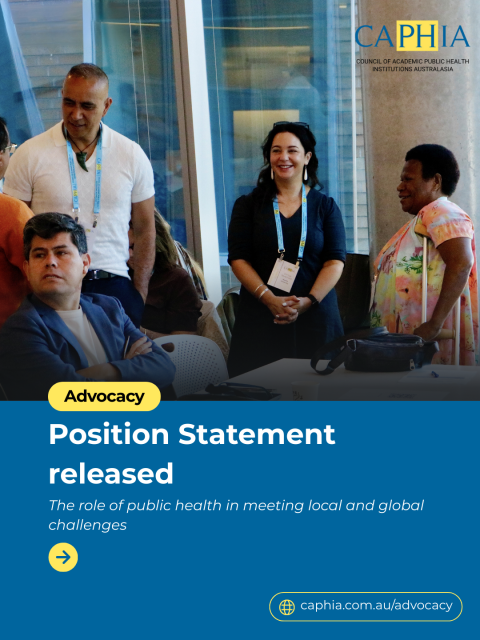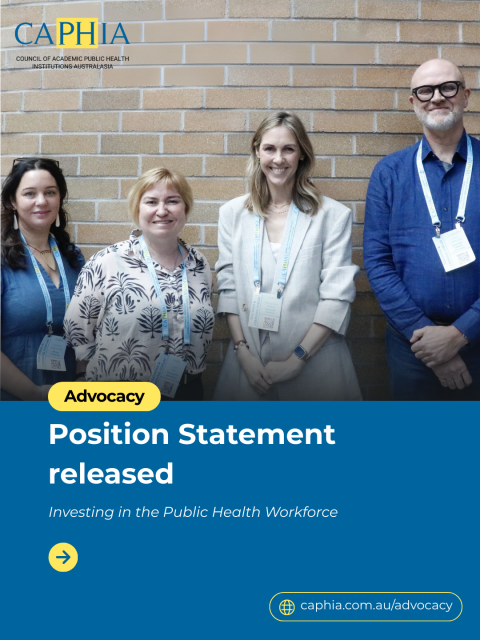Position Statement: The role of public health in meeting local and global challenges
CAPHIA Position Statement released: The role of public health in meeting local and global challenges

CAPHIA has released a new Position Statement outlining the critical role of public health in responding to the increasingly complex local and global challenges facing communities across Australasia and beyond.
From climate change, pandemics and chronic disease to mental health, food insecurity, conflict, misinformation and widening inequities, the pressures on health systems and communities are intensifying.




